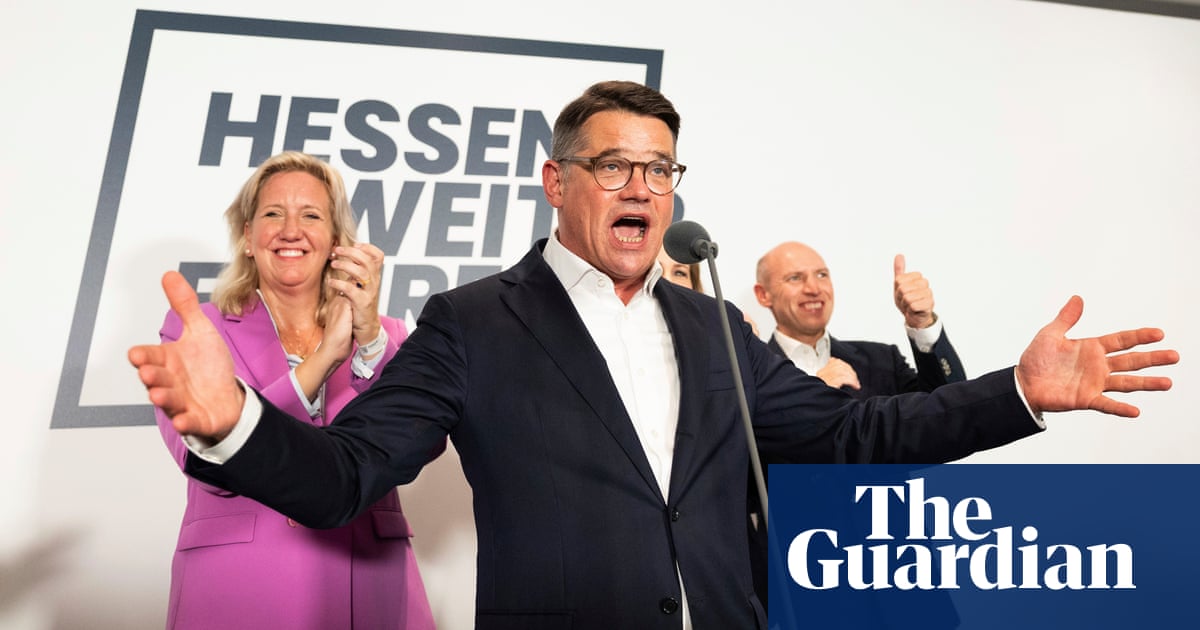Worries about the economy and migration pushed up share for far-right AfD in Hesse and Bavaria, while coalition parties did worse
German chancellor Olaf Scholz’s fractious centre-left coalition has received a sharp rebuke from voters in the key states of Bavaria and Hesse, with economic woes and immigration fears boosting the opposition conservatives and the far right.
At the elections on Sunday the far-right Alternative for Germany (AfD) party burst out of its post-industrial eastern strongholds to score its best ever result in a western state. Polls showed it on course to be the second largest party in Hesse, home to the financial capital Frankfurt.
All three parties in Scholz’s federal coalition – his Social Democrats, the Greens and the pro-business Free Democrats (FDP) – did worse than five years ago in the states, which together account for about a quarter of the German population.



Yeah, just like far-right ultraconservatives and fascists elsewhere, the idea is to always go “Nope, you’re all wrong and also all want to hurt us, in reality it’s all simple, we’ll fix it, just vote for us”.
Their issues are also stuff that is easy to make someone afraid of:
Sure, the AfD couldn’t fix a shoelace if they got into power, but they wouldn’t need to. And to get there, they can promise the moon full of simplest solutions and blame everyone else around them for everything. The issue that modern generations are so anti-politics overall that they no longer care and no longer even bother to look into it. And the older generations have seen too much negative consequences too quickly (that them or their parents fucked up) to not be vulnerable to populist rhetorics.